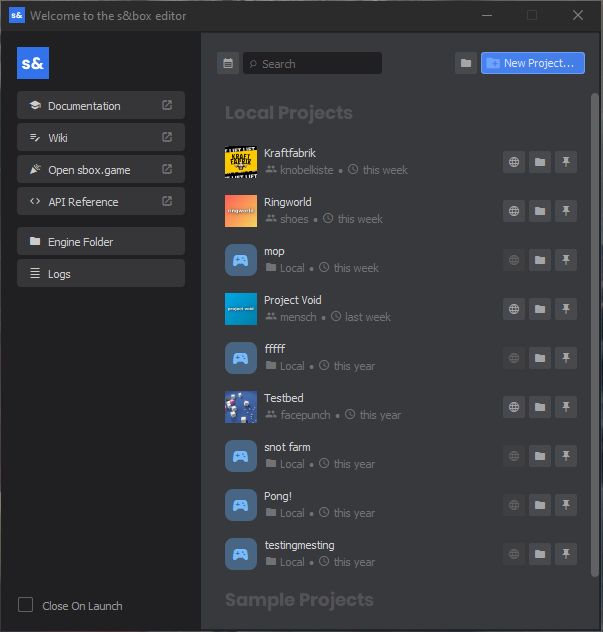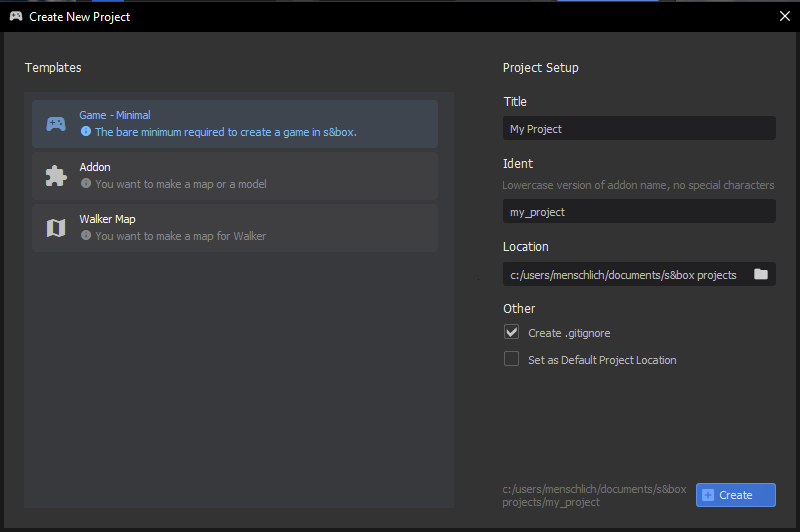Creating a Project
A New Project
When you boot up the s&box editor you'll be greeted with the welcome screen.

The first step is to create a Project. You can do this by clicking "New Project..." in the top right.
You'll be presented with a Create New Project window, choose a template.
Pick a name for your project and choose where you'd like to store it.

 Garry's Mod
Garry's Mod
 Rust
Rust
 Steamworks
Steamworks
 Wiki Help
Wiki Help
 S&box
S&box